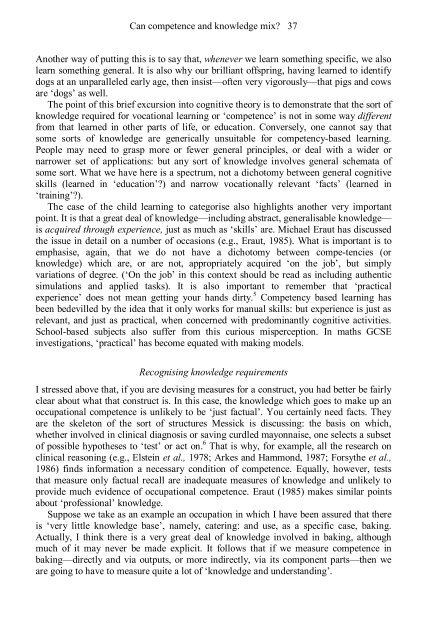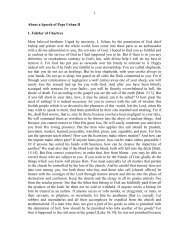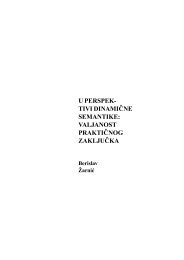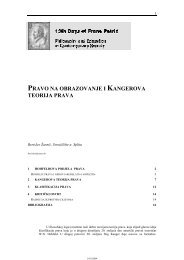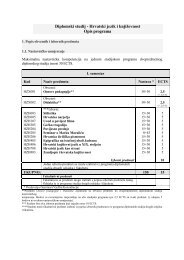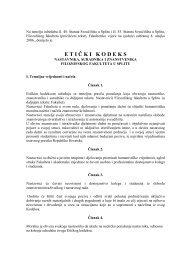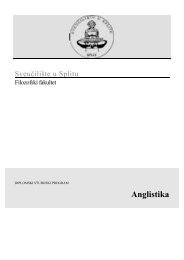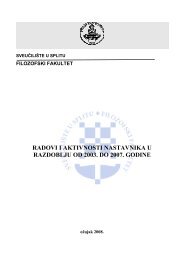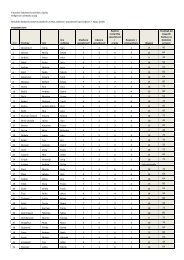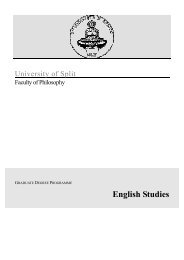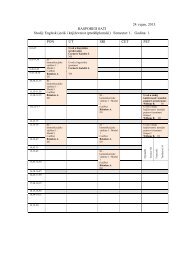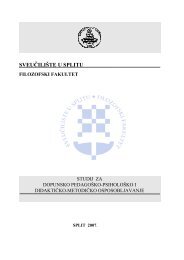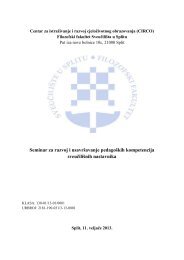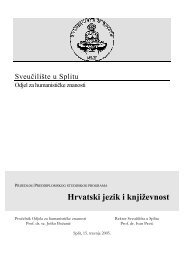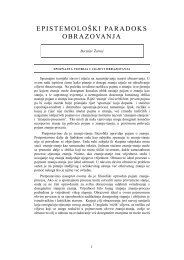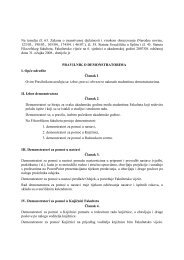Competency Based Education and Training
Competency Based Education and Training
Competency Based Education and Training
You also want an ePaper? Increase the reach of your titles
YUMPU automatically turns print PDFs into web optimized ePapers that Google loves.
Can competence <strong>and</strong> knowledge mix? 37<br />
Another way of putting this is to say that, whenever we learn something specific, we also<br />
learn something general. It is also why our brilliant offspring, having learned to identify<br />
dogs at an unparalleled early age, then insist—often very vigorously—that pigs <strong>and</strong> cows<br />
are ‘dogs’ as well.<br />
The point of this brief excursion into cognitive theory is to demonstrate that the sort of<br />
knowledge required for vocational learning or ‘competence’ is not in some way different<br />
from that learned in other parts of life, or education. Conversely, one cannot say that<br />
some sorts of knowledge are generically unsuitable for competency-based learning.<br />
People may need to grasp more or fewer general principles, or deal with a wider or<br />
narrower set of applications: but any sort of knowledge involves general schemata of<br />
some sort. What we have here is a spectrum, not a dichotomy between general cognitive<br />
skills (learned in ‘education’?) <strong>and</strong> narrow vocationally relevant ‘facts’ (learned in<br />
‘training’?).<br />
The case of the child learning to categorise also highlights another very important<br />
point. It is that a great deal of knowledge—including abstract, generalisable knowledge—<br />
is acquired through experience, just as much as ‘skills’ are. Michael Eraut has discussed<br />
the issue in detail on a number of occasions (e.g., Eraut, 1985). What is important is to<br />
emphasise, again, that we do not have a dichotomy between compe-tencies (or<br />
knowledge) which are, or are not, appropriately acquired ‘on the job’, but simply<br />
variations of degree. (‘On the job’ in this context should be read as including authentic<br />
simulations <strong>and</strong> applied tasks). It is also important to remember that ‘practical<br />
experience’ does not mean getting your h<strong>and</strong>s dirty. 5 <strong>Competency</strong> based learning has<br />
been bedevilled by the idea that it only works for manual skills: but experience is just as<br />
relevant, <strong>and</strong> just as practical, when concerned with predominantly cognitive activities.<br />
School-based subjects also suffer from this curious misperception. In maths GCSE<br />
investigations, ‘practical’ has become equated with making models.<br />
Recognising knowledge requirements<br />
I stressed above that, if you are devising measures for a construct, you had better be fairly<br />
clear about what that construct is. In this case, the knowledge which goes to make up an<br />
occupational competence is unlikely to be ‘just factual’. You certainly need facts. They<br />
are the skeleton of the sort of structures Messick is discussing: the basis on which,<br />
whether involved in clinical diagnosis or saving curdled mayonnaise, one selects a subset<br />
of possible hypotheses to ‘test’ or act on. 6 That is why, for example, all the research on<br />
clinical reasoning (e.g., Elstein et al., 1978; Arkes <strong>and</strong> Hammond, 1987; Forsythe et al.,<br />
1986) finds information a necessary condition of competence. Equally, however, tests<br />
that measure only factual recall are inadequate measures of knowledge <strong>and</strong> unlikely to<br />
provide much evidence of occupational competence. Eraut (1985) makes similar points<br />
about ‘professional’ knowledge.<br />
Suppose we take as an example an occupation in which I have been assured that there<br />
is ‘very little knowledge base’, namely, catering: <strong>and</strong> use, as a specific case, baking.<br />
Actually, I think there is a very great deal of knowledge involved in baking, although<br />
much of it may never be made explicit. It follows that if we measure competence in<br />
baking—directly <strong>and</strong> via outputs, or more indirectly, via its component parts—then we<br />
are going to have to measure quite a lot of ‘knowledge <strong>and</strong> underst<strong>and</strong>ing’.


